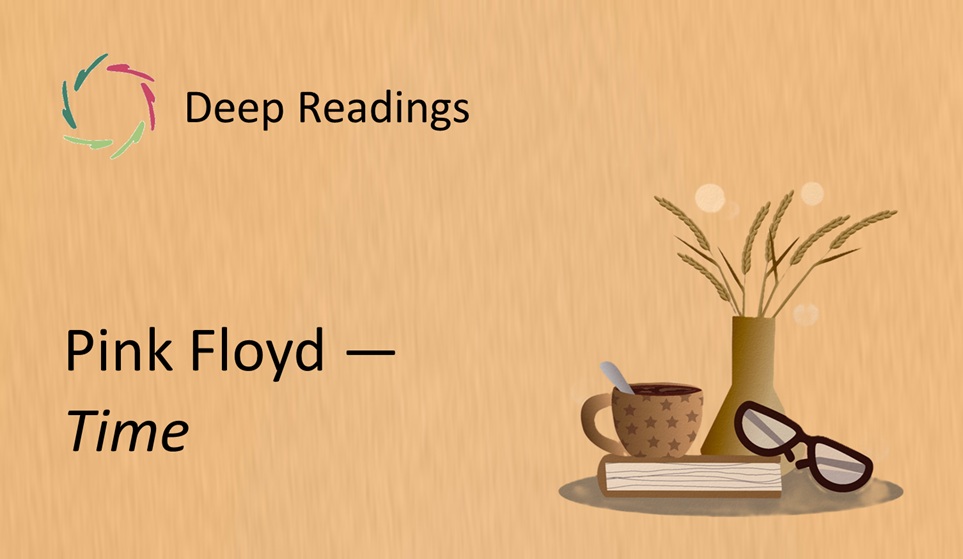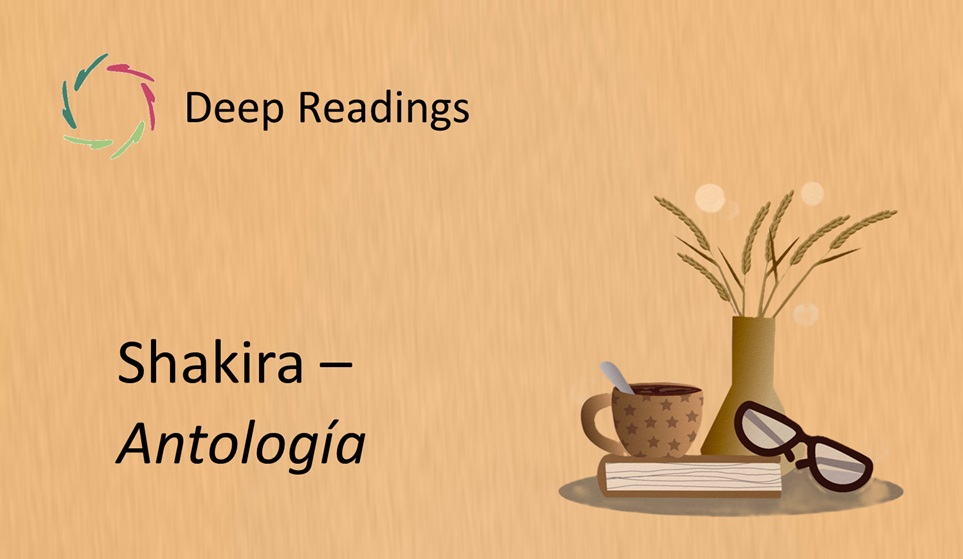Deep Readings: Pink Floyd ― Time (1973)

The fragment
“And then one day you find
ten years have got behind you
No one told you when to run,
you missed the starting gun.”
(Copyright proof)
Read full lyrics → Genius
Listen → Pink Floyd on YouTube (reunion version)
Contextual glimpse
From 1973’s The Dark Side of the Moon, “Time” stands at the album’s core: clocks exploding into life, heartbeat bass, and a lyric that turns the ordinary day into an existential mirror. Roger Waters wrote the words; David Gilmour’s vocal and guitar solo stretch the feeling of time into sound. The song begins in drift—busy days that blur—then pivots to the shock of noticing a decade has slipped by. It isn’t merely about getting older; it’s about waking up inside one’s own life. Across the album’s cycle—stress, money, alienation, mortality—“Time” is the hinge that asks whether we are truly here.
Resonance
The fragment captures a jolt: you realize that the race began without you noticing, and you’ve been moving but not arriving. The “starting gun” is less an event than a metaphor for awareness; life doesn’t announce itself, it accrues. The lines speak to a modern hypnosis—filled calendars, thin presence—where activity mimics meaning. Yet there’s tenderness in the recognition: the moment you see it is the moment you can turn.
From an AURELIS perspective, this is the pivot from autopilot to inner authorship. The shock is not punishment; it is permission to live differently now. The song’s energy rises after the fragment, suggesting that noticing is already a beginning. Time hasn’t been stolen; it has been waiting for you to arrive. Presence becomes a practice, not a scold.
Why this may also be about you
Most people carry a private ledger of “I’ll start when…” The fragment invites a different calculus: start because you noticed.
Readiness isn’t a schedule item; it’s a felt alignment. Small deliberate moments—one real breath, one honest choice—reframe the next hour, then the next year.
Lisa’s inspired, original idea about this fragment
Imagine a track where the crowd sprints at a gun you never heard. You come late—then realize your lane was never beside theirs. Your race begins when your foot touches ground with awareness.
Or picture a hallway of doors labeled “Someday.” The fragment is the one unlabeled door that opens when you knock from the inside.
Echoes
“Time” has lived far beyond 1973: quoted in graduation speeches, written on studio walls, stitched into memoirs. The alarm-clock intro still startles new listeners; Gilmour’s solo has become a rite of passage for guitarists. Live performances stretch the central idea—you can feel a stadium collectively realize the lyric isn’t accusing them; it’s waking them.
This persistence matters. The lines function as a shared ritual of noticing—across ages, cultures, and moments of midlife or midnight. Each replay becomes a small recommencement: the gun you “missed” is the one you hear now.
Inner invitation
Let this fragment live inside you for a while, like a bell that doesn’t ring out but rings in. Recall a season that blurred into “busy.” Without judgment, sense what you were seeking underneath the rush.
Choose one small act you can place in today that feels congruent—five quiet minutes, a call you’ve been postponing, a walk without headphones. Feel how the day changes when even one thing is done on time because it is done in time.
Closing note
This is about the human being you are: not late, but arriving—like sunlight crossing a room the moment the curtains are drawn.
Lisa’s final take
Time doesn’t chase you; it waits where you meet it.
Keywords
time, awareness, presence, awakening, midlife, autopilot, choice, inner authorship, meaning, readiness, practice, mortality, intentionAsk ChatGPT


